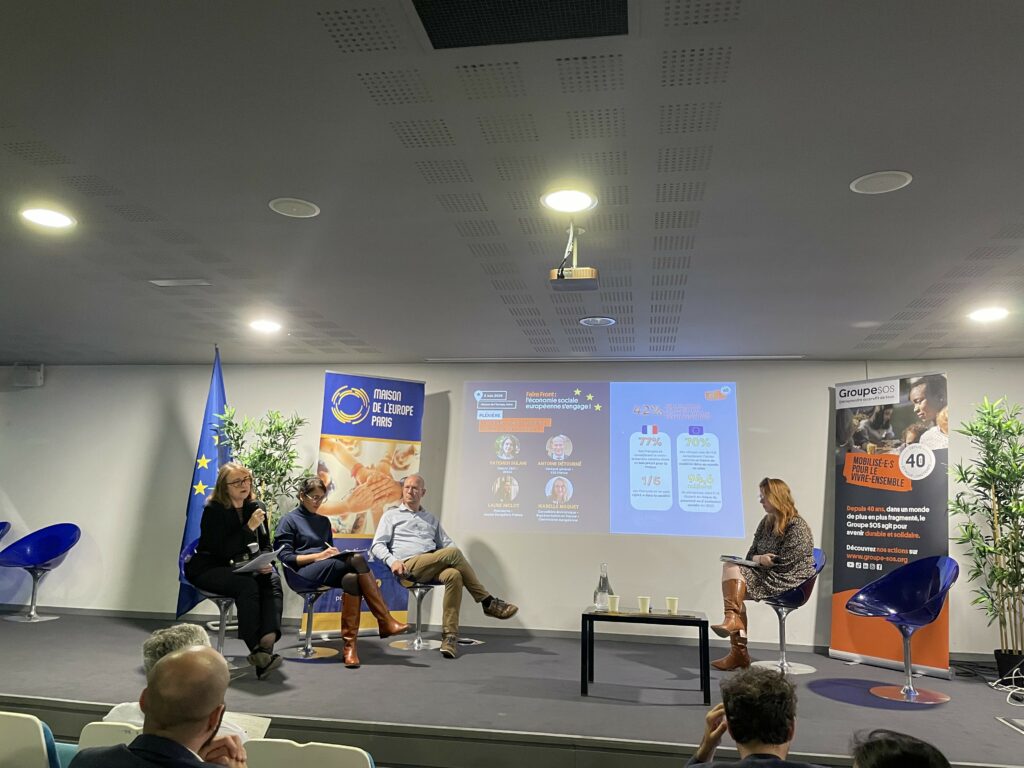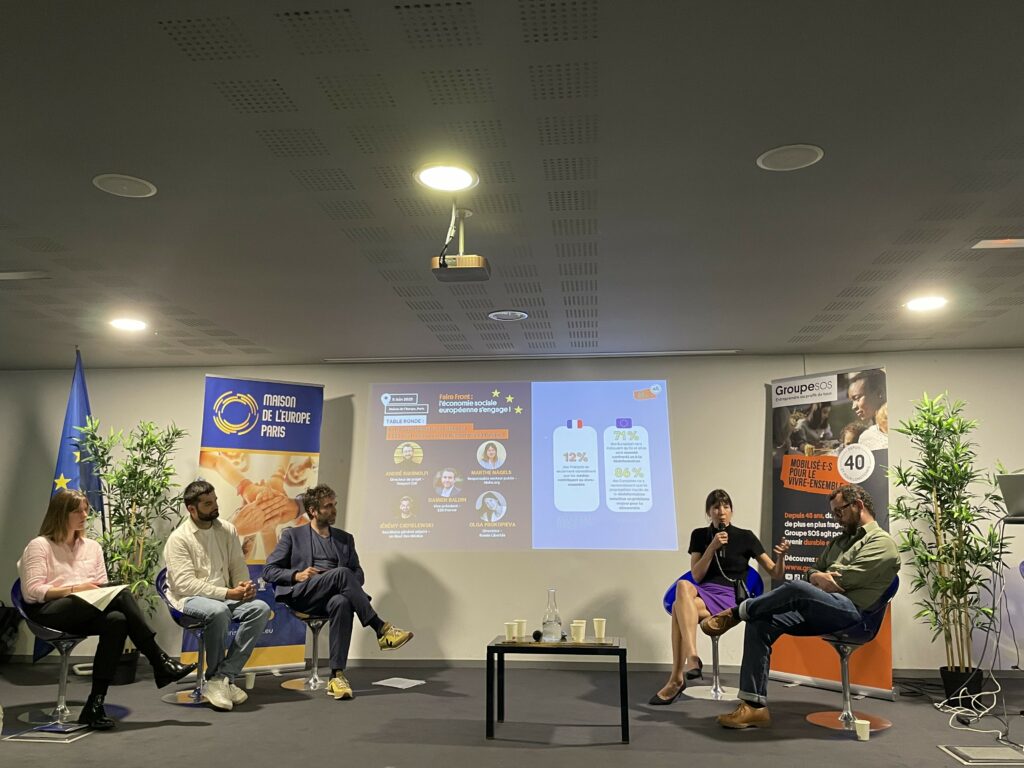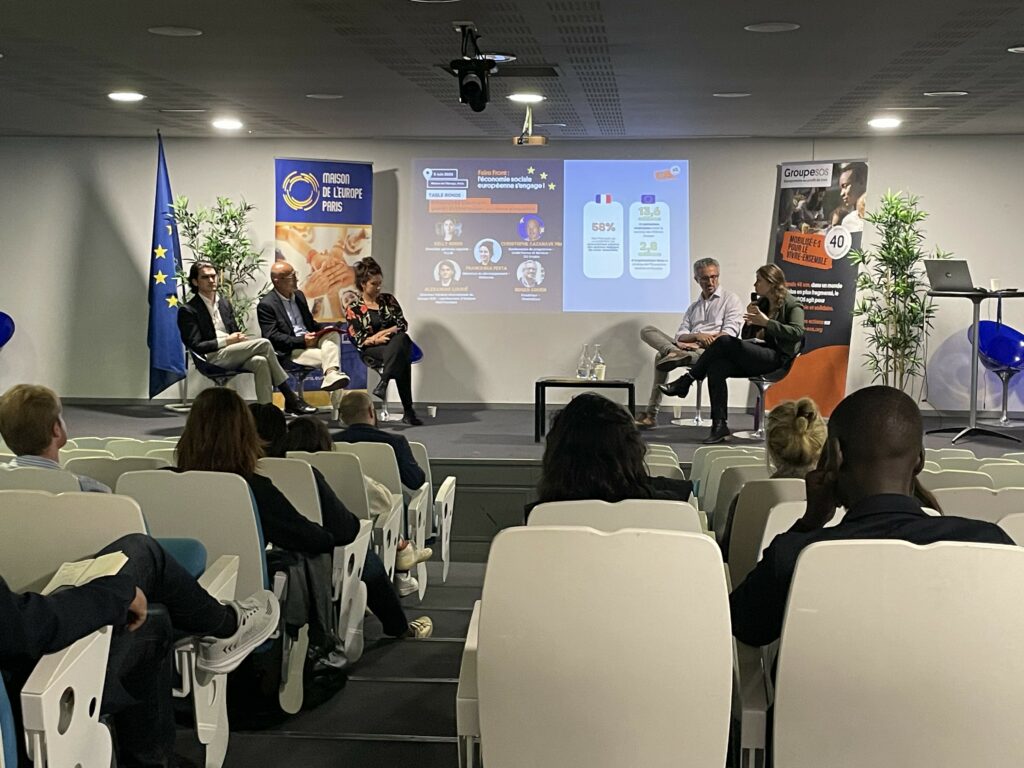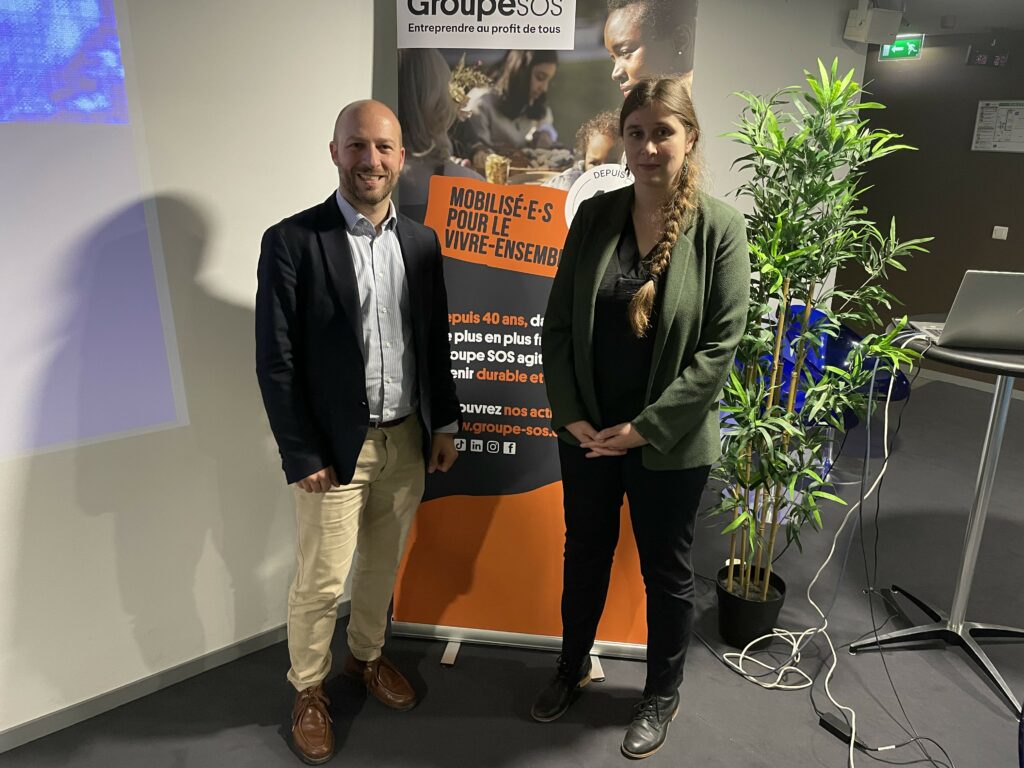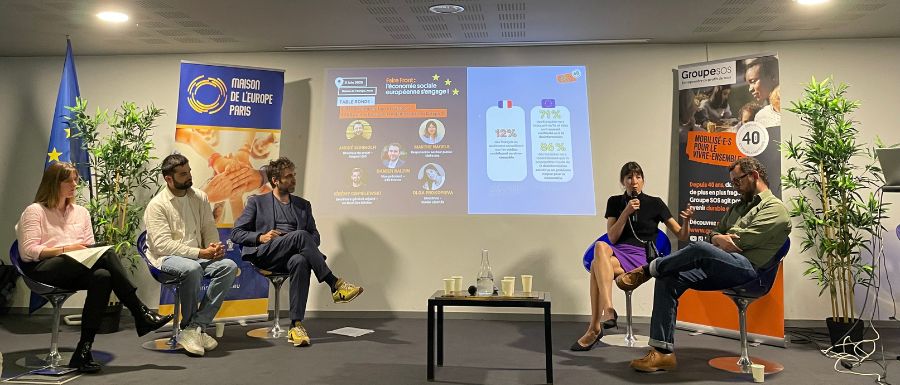On Thursday, 5 June 2025, ALDA took part in the launch of the Barometer on Living Together (“le vivre ensemble”), an initiative by Groupe SOS to mark its 40th anniversary, hosted at the Maison de l’Europe in Paris. The event, titled “Standing Together: The European Social and Solidarity Economy (SSE) Commits to a More Inclusive and United Europe,” was organised by Pulse, #ALDAMember, based in France.
As the European Commission evaluates its Action Plan on the Social Economy, this event served as both a timely reflection and a strong call to action. With four thematic roundtables, it brought together practitioners, civil society actors, and institutional representatives to explore how the Social and Solidarity Economy (SSE) can foster social cohesion, democratic resilience, and inclusive growth across Europe.
The Living Together Barometer: Bridging the Gap Between Aspiration and Reality
The newly launched Barometer reveals a striking paradox: while a large majority of French citizens believe that “vivre ensemble”—living together—is essential for quality of life, 80% see it as an unattainable ideal.
One of the keynote speakers, Fatemeh Jailani, Deputy CEO of SINGA, addressed this gap. She suggested that the lack of a shared definition may fuel this disconnect. For SINGA, vivre ensemble is grounded in dignity, solidarity, and equality. The organisation works to build inclusive spaces that encourage social innovation, empowering individuals to forge balanced relationships and feel a sense of belonging.
SSE: From Ideals to Action
Europe’s Social and Solidarity Economy is more than a concept: it is a powerful engine for social transformation. With over 4 million organisations and 11 million workers across Europe, the SSE translates values into action, often with significantly fewer resources than the private sector—yet with remarkable efficiency and impact.
A strong message emerged throughout the discussions: European institutions and donors must not see SSE actors solely as project implementers, but as architects of systemic change. Supporting them means investing in sustainable, inclusive futures.
Transforming Local Economies, Empowering Communities
In a dedicated session on economic transformation, Kelly Robin, Deputy Executive Director of Pulse, highlighted how Pulse fosters impactful entrepreneurship through ecosystem-level support. This approach enables long-term structural change, such as improved job accessibility and economic inclusion.
She underlined the challenge of convincing organisations working on social inclusion to embrace entrepreneurship as a meaningful path for their beneficiaries—often met with scepticism. Pulse’s efforts in the Western Balkans, where youth migration remains alarmingly high (up to 30% in Bosnia), demonstrate the cross-border relevance of SSE.
Robin also called for adapted EU monitoring and evaluation tools, noting that traditional metrics (like the number of businesses created) fail to capture SSE’s true added value—such as supporting labour integration, social cohesion, and inclusive development.
Contributing to the European Social Economy Agenda
The event concluded with an invitation from the European Commission to contribute to the public consultation on the mid-term review of the Social Economy Action Plan. This is a crucial opportunity to ensure that the voices of grassroots SSE actors are heard and that EU strategies reflect the depth and diversity of their impact.
ALDA’s Commitment
As a committed member of Europe’s civic and democratic ecosystem, ALDA stands alongside Pulse, Groupe SOS, and all SSE actors in advocating for a more inclusive, participatory, and solidar Europe. Events like this reinforce our belief that local solutions—rooted in community, equity, and shared responsibility—are key to addressing Europe’s most pressing challenges.
